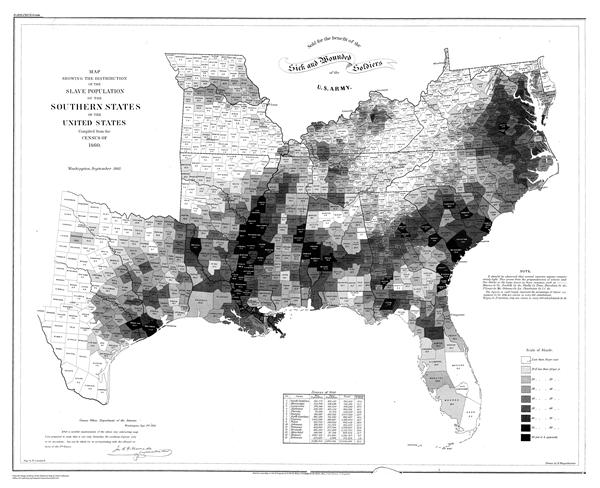The Battle of Carthage: Prologue
The Lincoln Administration (USA) considered Missouri to be a key state in their struggle to hold the Union together. The Davis Administration (CSA) wanted Missouri to secede and join the Confederacy. Strategically, Missouri shared a border with both Union and Confederate states and territories (Iowa, Illinois, Kansas, Arkansas, the Indian Territory, Kentucky and Tennessee), and contained vital waterways (the Mississippi and Missouri Rivers), which were critical to both transportation and communication. In addition, the state was rich in resources, including agriculture products (hemp, mules, etc.), and raw materials such as iron and lead. Missouri was the eighth most populous state in 1860, and provided a total of about 150,000 volunteers for the Union and the Confederacy. Although Missouri was a state in which owning slaves was legal, it was not like the deep south slave states. Only the State of Delaware had fewer slaves. Most slave owners owned less than five slaves. Only 540 individuals in the entire state owned more than 20 slaves. [1]

Check out this Map Showing the Distribution of the Slave Population of the Southern States of the United States. It was published in 1861 and based on the 1860 census. Click on this link to go to NOAA's Office of Coast Survey and see a larger image of this map.

After the war, Basil Duke, one of the pro-Southern leaders in St. Louis, wrote about the strategic importance of Missouri: [2]
It is almost impossible to estimate how vastly the chances of Southern success would have been augmented had Missouri been permitted to take her place in the Southern column . . . [Had the State of Missouri been controlled by the Confederacy, it's] . . . warlike population . . . would have . . . furnished a much larger and more formidable contingent to the Confederate cause than it did; while the number furnished the Federal army would have been greatly minimized . . . Lying along the flank of the Western loyal states, and occupied by adequate Confederate forces, she would have so threatened Illinois and even more eastern territory as to effectually hinder any enterprise which might have stripped that region of troops; and armies would have been required to defend it against the invasions made from Missouri.
In 1861, Missouri was a conservative state that wanted the status quo to continue. But the radical minorities on either side of the issues would struggle to take control of Missouri in 1861. The Battle of Carthage was part of the struggle for Missouri in 1861.
